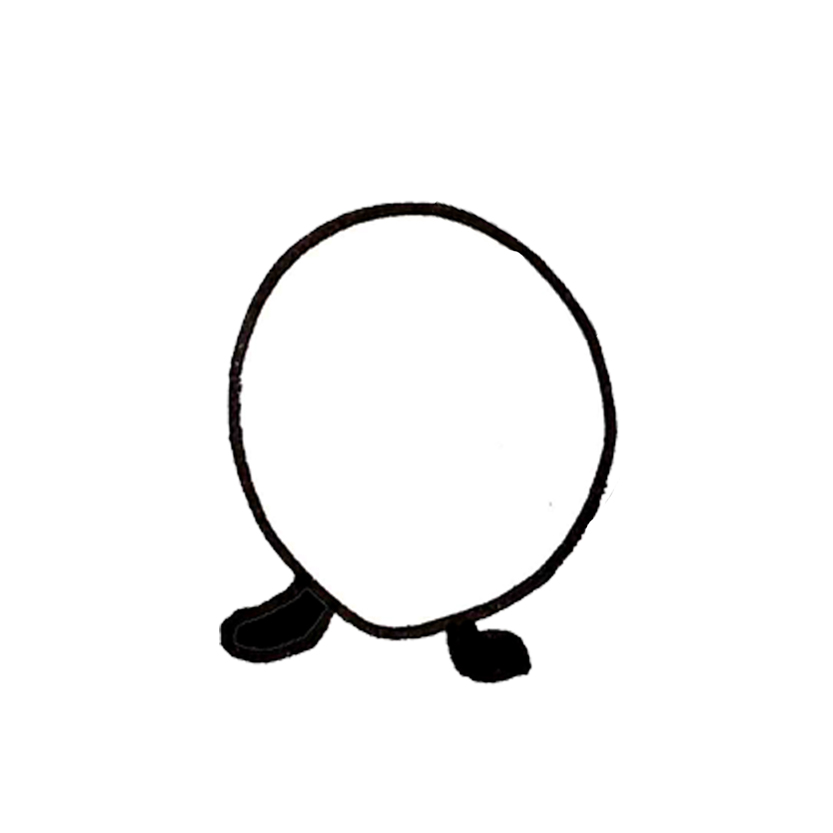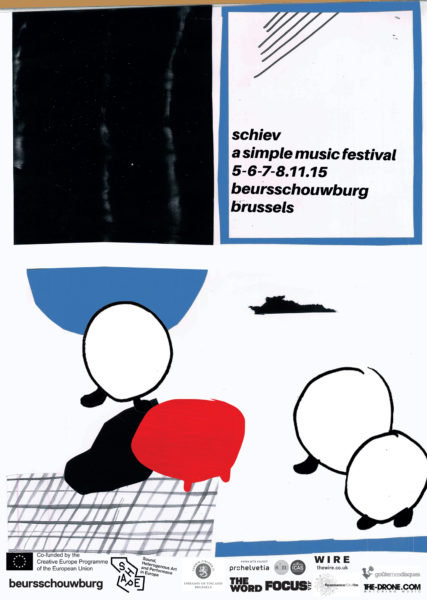Schiev is the youngest member of the SHAPE platform. Established by Sarah Lauzemis and Guillaume Kidula, both of whom have extensive experience in the field of music curation and festival organisation (as former members of Cimatics Festival and Les Siestes Electroniques, respectively) in Brussels, Schiev aims to be the “simple music festival”. The festival will present what it considers as the most ‘Schiev’ artists of the moment: those who seek, innovate and freely experiment with textures, influences, rhythms and composition. Several SHAPE artists will be also presented at its inaugural edition which takes place between 5 and 8 November 2015, including: Aisha Devi, Plapla Pinky, Borusiade, Gábor Lázár, Ketev, RSS B0YS, Low Jack, Zamilska and Autrenoir, a new project by Paul Régimbeau, also known as Mondkopf.
I probably caught you in the last stages of preparation. How does it look like in the Schiev office a few days before the festival?
Guillaume Kidula: We are a new festival. Even though we organised events in the past – Sarah was part of Cimatics and I was involved in Les Siestes Electroniques – it’s still the first edition. The idea of Schiev came up two years ago when I met Sarah on the stairs of BOZAR during the BOZAR Electronic Arts Festival, another great Brussels festival.
Right now, it’s a bit hectic, we are fine-tuning the last details and we don’t sleep much but we also get the kick out of having a tremendous team working around us to make this project happen.
Sarah Lauzemis: Overall, we have a pretty positive feeling on how things are prepared and evolving since we started. At first, we were searching for the right concept and this took us quite a while, nearly a year. The following half a year was spent on administrative steps, fundraising and fine-tuning our idea. And now we finally see how concrete it all gets and this is as much a relieving but also a very exciting moment.
Can you talk about the concept of “the simple music festival”? Is it a statement?
SL: We just want to be a simple music festival, easy going and accessible. We have no pretensions about being something more. We choose the artists we choose, and some are challenging but we know our audience will give them a chance.
GK: In the end, the music we are showcasing is just contemporary pop music. When people are going to listen to the music of 2015 in the future, they will listen to something similar to what we presented at the festival, and it won’t be labelled as experimental. We also trust our audience and the people of Brussels. They know a lot about music and welcome experimentation and new things more easily than in any other place.
And we don’t aim to be some kind of alternative Disneyland. We really want to do a music festival and put our focus on that aspect.
What is the importance and influence of the local context on Schiev?
SL: The Belgian mentality is very easy-going. Brussels is like a village, everyone knows each other. Having a simple music festival also goes along with the ethos of this city. Belgium is a country of paradoxes and surrealism. It is based on the principle that nothing is totally true or false. Schiev is also a Brussels term, which means “crooked”.
GK: People here are anything but show-offs and that’s something we really like. We obviously want to promote artists, « local » and international ones, but in a low-key Brussels’ way.
Gábor Lázár is obviously not that easy to listen to. But here in Brussels, we know that the difference between our tagline, “simple music festival”, and what we showcase will make people laugh – it’s just a festival. We also want to emphasize a simple relation between the audience and the artists. The stage is 50cm high, thus artists almost play on the floor. We would like them to interact in an informal way.
SL: Brussels is the centre of the European Union. So on one hand it’s this and on the other there’s the Brussels crowd, which actually doesn’t interact that much or at all with the international institutions, but which has its own way of working and it’s definitely a pretty dynamic scene. We work on two levels – we bring European artists over to Brussels and give Belgian artists visibility on the European festival circuit. This year our lineup is 50 percent Belgian and 50 percent international.
https://www.mixcloud.com/NTSRadio/lowjack-shape-takeover-16th-april-2015/
Can you talk about what kind of artists were you looking for for the festival?
GK: We looked for artists playing with the boundaries of the genre they are supposed to represent, people who are working on the borders, like Sagat, a SHAPE artist, who also plays in a project called Bepotel. Sagat is more or less a techno artist, his colleague &apos does electronica and Walrus makes house. When they do music together, they don’t try to settle for something in the middle: they find the fragile alchemy in-between. Low Jack, for example, is also trying to bring techno to a point where techno nearly dissolves. And this was really “Schiev” for us. Or Gábor Lázár, who’s trying to reach an amazing level of abstraction, but to a certain extent it’s still pop. We wouldn’t label it as experimental in a sense that you have to be educated to know what’s going on.
What is the role of festivals like yours – the urban electronic festivals – these days?
SL: For a while there was an effort to do something global and being more global than the other festivals before but since a couple of years now, we have reached some kind of limit to this globalness and people are now much more inclined to go for something more local. It’s not grabbing the global and putting it into the local, but it’s about starting from the local, looking at what’s global and going back to the local.
GK: The idea of simplicity is at the core. Let’s try to do simple things again, like a concert. A well done concert with the right artist performing for the right crowd at the right time is already something amazing.
Is this (return to) simplicity also political in a way?
SL: We are not a political festival per se and never will be, but maybe in the way that we play with the local and the national scene, we are.
GK: Providing people with a place and time where they can talk, experience and build something together is a political act.
Can you talk about Beursschouwburg, the venue where the festival will take place?
SL: The venue is a very nice building located right in the city centre of Brussels. It has several floors. But for the first edition, we decided to do the festival only on the rooftop which also has a terrace. It’s a cosy place and people can easily meet and enjoy the music at the same time.
GK: They showcase top projects throughout the year and they are also trying to mix all kinds of art with social projects. We really get a lot of support from them. We consider them co-producers in a way. They really helped us build this event.
SL: We are a French-speaking team in a Flemish building. And this, on a local level, is very important. Because it is part of our work to be able to say that we all work together. We are one country, even if we don’t have the same language. It’s symbolic.

